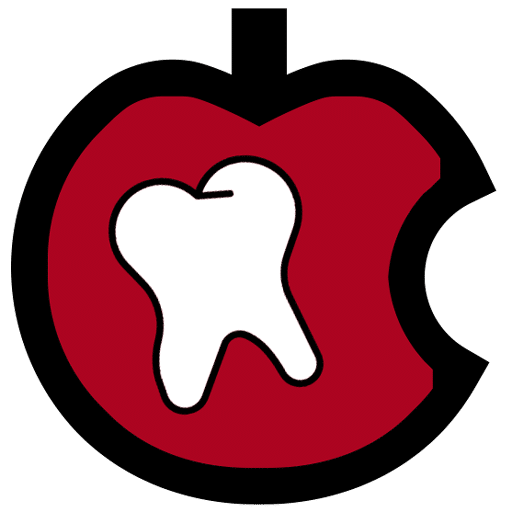Brooklyn offers two excellent dental assistant programs tailored to different needs. Each program provides the training and skills necessary to start a career in dental assisting, but their formats, costs, and target audiences vary.
- Dental Auxiliary Training Center (DATC): A 4-month program costing $1,995, featuring evening classes for adults with hands-on training led by experienced instructors and job readiness workshops.
- Clara Barton High School: A free, two-year Career and Technical Education (CTE) program for high school juniors and seniors, combining classroom learning, clinical rotations, and certification preparation.
Explore the details of each program to determine which one best fits your career goals.
Featured Schools
Click on a program to learn more.
Dental Auxiliary Training Center
The Dental Assistant program at the Dental Auxiliary Training Center (DATC) in Brooklyn costs $1,995, with a flexible payment plan available. The program spans 4 months and offers evening classes tailored for adult learners. Classes are led by state-licensed instructors with over 25 years of experience, ensuring students receive both hands-on and theoretical training.
The curriculum covers essential dental assisting skills, including dental terminology, radiology, infection control, sterilization, and dental materials. Additional modules focus on dental anatomy, preventive oral hygiene, and managing dental office emergencies. Graduates earn a certificate of achievement upon successfully completing attendance, coursework, and a final exam.
DATC also provides free monthly employment readiness workshops to help students transition into the workforce. Applicants must be at least 17 years old, hold a high school diploma or GED, and complete a phone interview as part of the admissions process. This program is ideal for those seeking affordable, practical training in a supportive environment.
Clara Barton High School
The Dental Assistant program at Clara Barton High School in Brooklyn is part of the school’s Career and Technical Education (CTE) offerings. It spans the 11th and 12th grades, preparing students for employment in dental offices or further education in dental hygiene or related fields. Students learn both clinical and administrative dental assistant skills through a mix of classroom instruction, hands-on training in the school’s dental clinic, and rotations at Woodhull Hospital.
Key topics include infection control, sterilization, radiology, chairside assisting, and dental anatomy. Students also gain experience in four-handed dentistry, patient care, and office management. The program includes preparation for the Radiation Health and Safety (RHS) exam, a step toward becoming a Certified Dental Assistant.
Graduates leave with practical experience and foundational knowledge for various healthcare careers. To succeed, students are required to maintain a minimum grade of 75 in all coursework and exhibit professionalism in clinical and classroom settings. The program is unique in New York, offering high school students a comprehensive pathway to dental assisting certification.
How These Programs Differ
Here’s how the Dental Auxiliary Training Center (DATC) and Clara Barton High School dental assistant programs differ, depending on what you’re looking for:
Dental Auxiliary Training Center (DATC)
This program is designed for adults, costs $1,995, and runs for 4 months with evening classes, making it ideal for those needing flexibility. The training focuses on hands-on and theoretical learning with state-licensed instructors who have extensive experience. DATC emphasizes job readiness by offering monthly employment workshops to support graduates in finding jobs. It’s a great choice if you’re looking for a short, focused program to quickly enter the dental field. Applicants need to be at least 17 years old and have a high school diploma or GED.
Clara Barton High School
This program is part of the high school’s Career and Technical Education (CTE) curriculum, meaning it’s available to students in 11th and 12th grade at no additional cost. The program includes both classroom learning and hands-on clinical training at the school’s dental clinic and through rotations at Woodhull Hospital. It’s a comprehensive two-year program that prepares students for entry-level positions or further studies in dental hygiene or related fields. Students also have the opportunity to take the Radiation Health and Safety (RHS) exam, a step toward certification. However, this option is only open to high school students.
If you’re already out of high school and want a fast, flexible program, DATC might be a better fit. If you’re still in high school and looking for a no-cost, in-depth option, Clara Barton High School is a great choice.
| Category | Dental Auxiliary Training Center (DATC) | Clara Barton High School |
| Cost | $1,995 (payment plans available) | Included as part of high school tuition |
| Duration | 4 months | 2 years (11th and 12th grade) |
| Schedules | Evening classes | School hours with clinical rotations |
| Target Audience | Adults (17+ with a high school diploma or GED) | High school juniors and seniors |
| Learning Format | Hands-on and theoretical training with monthly job readiness workshops | Classroom learning, hands-on clinical training, and hospital rotations |
| Certification Prep | Certificate of achievement | Preparation for Radiation Health and Safety (RHS) exam |
| Location | 111 Fort Greene Pl, Brooklyn, NY 11217 | 901 Classon Ave., Brooklyn, NY 11225 |
| More Info | DATC | Clara Barton High School |
